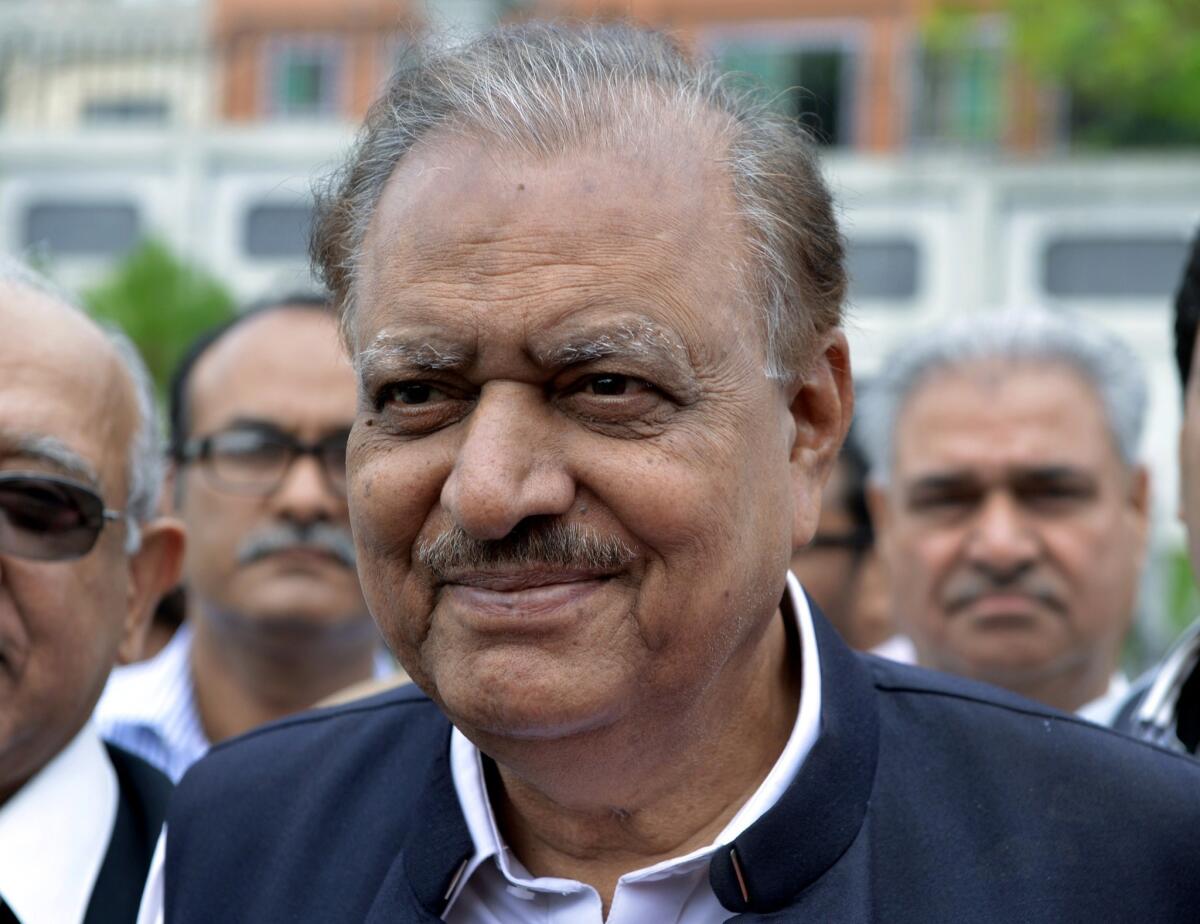Pakistani lawmakers elect Sharif loyalist as country’s president

ISLAMABAD, Pakistan — Pakistani lawmakers elected a longtime stalwart of Prime Minister Nawaz Sharif’s ruling party as the country’s new president Tuesday, paving the way for President Asif Ali Zardari’s exit when his term ends Sept. 8.
Mamnoon Hussain, 73, will assume a presidency that is for the most part a ceremonial post. During his five years in office, Zardari wielded the most power within the civilian arm of the government not because he was president but because he headed up the ruling party during that time, the Pakistan People’s Party (PPP).
Sharif, who took office in early June, leads the country’s new ruling party, the Pakistan Muslim League-N, and holds the most power within the civilian government. His party trounced its rivals, the PPP and former cricket star Imran Khan’s Movement for Justice Party in parliamentary elections in May.
Sharif’s strong showing in the May elections gave him more than enough votes in parliament and provincial assemblies to handily ensure Hussain’s victory Tuesday. Citizens vote in the parliament elections, but the presidential contest is decided by votes held in the country’s Senate and National Assembly, as well as in its four provincial assemblies.
Hussain’s only competition came from Wajihuddin Ahmed, a retired judge and a member of Khan’s Movement for Justice Party. Hussain defeated Ahmed in the Senate and National Assembly votes and in every provincial assembly except Khyber-Pakhtunkhwa, a Movement for Justice stronghold.
Born in 1940 in the Indian state of Uttar Pradesh, Hussain is a Karachi textile executive whose tenure with Sharif’s PML-N dates back to the late 1990s, when Sharif was prime minister. Hussain served as governor of Sindh province from June to October 1999, when former military ruler Gen. Pervez Musharraf ousted Sharif in a military coup.
Zardari, who took office in 2008 on a wave of national support following the December 2007 assassination of his wife, former Prime Minister Benazir Bhutto, leaves the presidency with a mixed legacy.
Zardari has been hailed as a savvy political survivor who weathered repeated clashes with the country’s powerful military and an activist Supreme Court, and ultimately ensured that his civilian administration was the first in Pakistan’s history to ever complete a five-year term and hand over power to another civilian government. Every other civilian government’s term had been interrupted by military coups and political ousters. But Zardari also became deeply unpopular throughout Pakistan, a nation crippled by rising debt, inflation, perpetual terrorist attacks and daily power outages that last as long as 20 hours in some regions.
His party came a distant third in parliament elections in May, and is now relegated to the role of a secondary opposition force behind Khan’s Movement for Justice Party.
ALSO:
Militants storm Pakistani prison, free 248 prisoners
U.S. peace initiative’s fate hinges on Israeli, Palestinian leaders
Beyond his Moscow airport limbo, indignities await Edward Snowden
More to Read
Sign up for Essential California
The most important California stories and recommendations in your inbox every morning.
You may occasionally receive promotional content from the Los Angeles Times.










